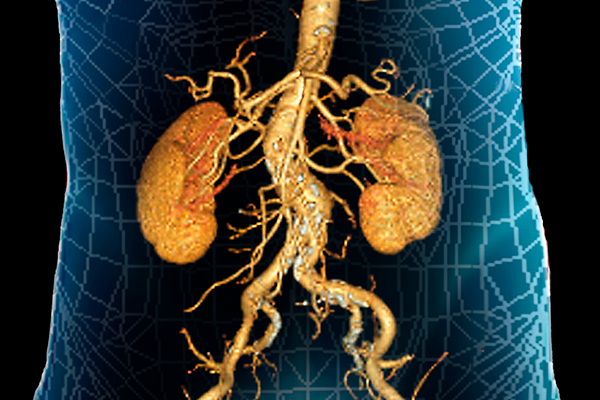Renal and Mesenteric Artery Disease
Renal and mesenteric artery disease is a vascular disease that affects the arteries that supply the kidneys and intestines. These arteries either narrow or become blocked due to atherosclerosis, a hardening of the arteries due to plaque accumulation. Frequently, renal and mesenteric artery disease occurs in a patient who has atherosclerosis in other parts of the body as well.
The symptoms include high blood pressure, fatigue, abdominal pain, and vomiting. If your doctor suspects you have renal and mesenteric artery disease, he could order blood tests, ultrasound, CT scan, MRI, or diagnostic catheterization to confirm or rule out the presence of the disease. Treatment usually consists of medications, lifestyle changes, or surgical procedures such as angioplasty with a stent placement to reopen the artery and support the walls to increase blood flow and prevent a blockage.
